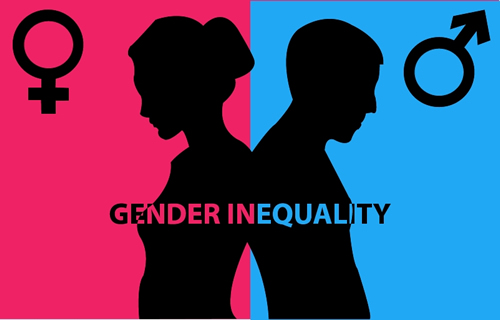Government making efforts to address inequality – NDPC
 Government is making efforts to address the challenges of inequality in the country, Mr Kwaku Adjei-Fosu, Deputy Director, Plan Coordinating Division of the National Development Planning Commission (NDPC) said on Tuesday.
Government is making efforts to address the challenges of inequality in the country, Mr Kwaku Adjei-Fosu, Deputy Director, Plan Coordinating Division of the National Development Planning Commission (NDPC) said on Tuesday.
He said the inequality challenges in Ghana were being addressed through the Coordinated Programme of Economic and Social Development Policies (2017-2024).
He said others include Medium-term National Development Policy Framework 2018-2021; adding that both were dubbed “An Agenda for Jobs: Creating Prosperity and Equal Opportunity for All”
Mr Adjei-Fosu said this in his presentation at a day’s forum on the topic “Reducing Inequality in Ghana: the Role of Stakeholders,” in Accra.
The forum, which was organised by the Media Foundation for West Africa (MFWA) in partnership with OXFAM-Ghana, brought together key stakeholders including the media, civil society organisations, government representatives, and the diplomatic corps.
It was to deliberate on the worrying trend of inequality in Ghana despite the country’s gains at poverty reduction.
The forum formed part of MFWA’s activities under the Democratic Governance in West Africa (DEGOWA) programme with funding support from OXFAM-Ghana.
Mr Adjei-Fosu said the challenges of inequality in the country include disparity in rate of decline of poverty across the country and among different population groups.
Others are unequal spatial distribution of the benefits of growth and rising inequality among socio-economic groups and between geographical areas.
Mr Adjei-Fosu, said Ghana successfully achieved the Millennium Development Goal One (MDG One) of halving the proportion of people living in extreme poverty. However, Income inequality in Ghana, using the Gini Coefficient measure, increased continuously from 37.3 per cent in 1991/92 to 42.3 per cent in 2012/13.
He said government’s policy objective was to eradicate poverty in all its forms and dimensions.
He noted that government was developing measures to ensure fair and balanced allocation of national resources across ecological zones, gender, income and socio-economic groups, including Persons with Disabilities (PWDs), which is the Sustainable Development Goals Target 1.4 (SDGs Target 1.4)
Others are empowering vulnerable people to access basic necessities of life (SDGs Target 1.4) and to strengthen the capacity of oversight institutions regarding poverty reduction (SDGs Target 16.6).
He said as part efforts to address the inequality gap, the government would accelerate the establishment of special development authorities for selected areas and also expand social and economic infrastructure and services in rural and poor urban areas.
He said in addition, the government would improve business development services including investment plans to facilitate local economic development and private sector participation.
Mr Sulemana Braimah, the Executive Director, MFWA, urged the media to step up their game in the fight against poverty and inequality in the country.
He said the inequality gap, which continues to increase between urban and rural communities, socially and politically, threatens the Ghana’s socioeconomic gains attained over the past two decades.
Source: GNA
